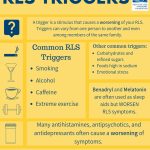If you’ve ever struggled with getting a good night’s sleep, you may have considered taking a sleeping pill. While these medications can be effective in helping you doze off, it’s important to understand that not all sleeping pills are created equal. In fact, some can be downright dangerous. So, which sleeping pill is dangerous? Let’s dive into the topic and explore the potential risks associated with these medications.
When it comes to finding the right sleeping pill, it’s crucial to prioritize your safety. After all, the last thing you want is to trade one problem for another. While there are various types of sleeping pills available on the market, not all of them are equally safe. Some may come with a higher risk of side effects or dependence, posing potential dangers to your health. So, it’s essential to educate yourself about the potential risks before making a decision. In this article, we’ll uncover which sleeping pill you should be cautious about and provide you with the information you need to make an informed choice. Let’s dive in!
Choosing the right sleeping pill is important for your health and safety. While there are various sleeping pills available, it’s crucial to be aware of their potential dangers. Some sleeping pills, such as Ambien and Lunesta, may have side effects like drowsiness, dizziness, and even sleepwalking. However, the most dangerous sleeping pills are those that contain benzodiazepines, such as Xanax and Valium. These drugs can be highly addictive and may lead to dependence or overdose if not used properly. Always consult with a healthcare professional before taking any medication for sleep.
Which Sleeping Pill Is Dangerous?
Sleeping pills are commonly used to help individuals struggling with insomnia or other sleep disorders. While these medications can be effective in promoting sleep, it is important to be aware of their potential dangers. Not all sleeping pills are created equal, and some can pose serious risks to your health. In this article, we will explore the different types of sleeping pills and identify which ones can be dangerous.
The Different Types of Sleeping Pills
When it comes to sleeping pills, there are several different classes of medications that are commonly prescribed. These include benzodiazepines, non-benzodiazepine sedatives, and melatonin receptor agonists. Each class of medication works differently to induce sleep and can have varying levels of effectiveness and safety.
Benzodiazepines, such as diazepam and lorazepam, are a class of medications that are commonly prescribed for anxiety and sleep disorders. They work by enhancing the effects of a neurotransmitter called gamma-aminobutyric acid (GABA), which helps to calm the brain and promote sleep. While benzodiazepines can be effective in the short-term, they can also be highly addictive and can cause a range of side effects, including daytime drowsiness, dizziness, and memory problems.
Non-benzodiazepine sedatives, such as zolpidem and eszopiclone, are another class of medications commonly used to treat insomnia. These medications work by targeting specific receptors in the brain that help to regulate sleep. Non-benzodiazepine sedatives are generally considered to be safer than benzodiazepines, as they have a lower risk of addiction and fewer side effects. However, they can still cause drowsiness, dizziness, and impaired coordination.
Melatonin receptor agonists, such as ramelteon and tasimelteon, are a newer class of medications that work by mimicking the effects of melatonin, a hormone that helps to regulate the sleep-wake cycle. These medications are generally considered to be safe and have a lower risk of dependency or addiction. However, they can still cause drowsiness and fatigue.
The Dangers of Sleeping Pills
While sleeping pills can be beneficial for individuals struggling with sleep disorders, they also come with potential risks and dangers. One of the main concerns with sleeping pills is the risk of dependency and addiction. Benzodiazepines, in particular, have a high potential for abuse and can lead to physical and psychological dependence. Long-term use of benzodiazepines can also result in tolerance, meaning higher doses are needed to achieve the same effect.
Another danger of sleeping pills is the potential for side effects. Common side effects of sleeping pills include drowsiness, dizziness, and impaired coordination, which can increase the risk of falls and accidents, especially in older adults. Some individuals may also experience memory problems, confusion, and hallucinations while taking these medications.
Sleeping pills can also interact with other medications and substances, leading to potentially dangerous interactions. For example, combining sleeping pills with alcohol or other central nervous system depressants can increase the sedative effects and can be life-threatening. It is important to discuss all medications and substances with your healthcare provider to ensure safe and effective use of sleeping pills.
In conclusion, while sleeping pills can be helpful in promoting sleep, it is important to be aware of their potential dangers. Benzodiazepines, such as diazepam and lorazepam, can be highly addictive and have a range of side effects. Non-benzodiazepine sedatives and melatonin receptor agonists are generally considered to be safer options, but they can still cause drowsiness and impaired coordination. It is important to discuss the risks and benefits of sleeping pills with your healthcare provider to determine the best course of treatment for your sleep disorder.
Key Takeaways: Which Sleeping Pill is Dangerous?
- Some sleeping pills can have dangerous side effects.
- Ambien, Lunesta, and Sonata are commonly known as potentially dangerous sleeping pills.
- These pills can cause drowsiness, confusion, and memory problems.
- Long-term use of sleeping pills can lead to dependency and addiction.
- It is important to consult a healthcare professional before taking any sleeping pill.
Frequently Asked Questions
What are some dangerous sleeping pills?
When it comes to sleeping pills, there are a few that have been associated with potential risks and dangers. One such example is the medication known as Ambien. Although it can be effective in treating sleep disorders, Ambien has been linked to side effects such as sleepwalking, memory loss, and even bizarre behaviors. Another sleeping pill that has raised concerns is Lunesta, which has been associated with sleep-related activities like driving or eating while asleep. It’s important to remember that while these pills can be helpful for some individuals, they should be used with caution and under the guidance of a healthcare professional.
Additionally, it’s worth mentioning that over-the-counter sleep aids, such as diphenhydramine (found in medications like Benadryl or Tylenol PM), can also pose risks when not used as directed. These medications can cause drowsiness and impaired coordination, making activities like driving potentially dangerous. It’s always best to consult with a healthcare professional before taking any sleep medication to ensure it is safe for you.
Are all sleeping pills addictive?
No, not all sleeping pills are addictive. However, some sleeping pills can be habit-forming if used for a long period of time or in high doses. Benzodiazepines, such as Xanax or Valium, are examples of sleeping pills that have a potential for addiction. These medications can lead to dependence and withdrawal symptoms if not taken as prescribed. Non-benzodiazepine sedative-hypnotics, like Ambien or Lunesta, have a lower risk of addiction but should still be used with caution.
It’s important to follow your healthcare professional’s instructions when taking any sleep medication and to only use them for the recommended duration. If you have concerns about the addictive potential of a specific sleeping pill, it’s best to discuss them with your doctor or pharmacist.
What are the common side effects of sleeping pills?
Like any medication, sleeping pills can have side effects. Common side effects of sleeping pills include drowsiness, dizziness, headache, and nausea. Some individuals may also experience next-day drowsiness, which can impair their ability to perform daily tasks. Additionally, certain sleep medications have been associated with more serious side effects, such as sleepwalking, memory loss, or even allergic reactions.
If you experience any unusual or severe side effects while taking a sleeping pill, it’s important to contact your healthcare professional immediately. They can assess your symptoms and determine if any adjustments need to be made to your treatment plan.
How can I safely use sleeping pills?
To safely use sleeping pills, it’s important to follow the recommendations of your healthcare professional. They will consider factors such as your medical history, current medications, and sleep patterns to determine the most appropriate sleep medication for you. It’s essential to take the medication as prescribed and avoid exceeding the recommended dosage.
Additionally, it’s important to create a healthy sleep routine and practice good sleep hygiene. This includes maintaining a consistent sleep schedule, creating a comfortable sleep environment, and avoiding stimulants like caffeine or electronic devices before bedtime. These lifestyle changes can complement the use of sleep medication and promote better sleep quality.
Are there any natural alternatives to sleeping pills?
Yes, there are natural alternatives to sleeping pills that can promote better sleep. Some options include practicing relaxation techniques, such as deep breathing or meditation, before bedtime. Herbal remedies like valerian root or chamomile tea may also have calming effects and aid in sleep. Additionally, establishing a regular exercise routine and avoiding caffeine or heavy meals close to bedtime can contribute to better sleep quality.
However, it’s important to consult with your healthcare professional before starting any natural remedies, as they may interact with other medications or have potential side effects. They can provide personalized recommendations based on your individual needs and health condition.
Sleeping Pills can KILL YOU
Final Thought: The Dangers of Sleeping Pills
After exploring the realm of sleeping pills and their potential dangers, it’s clear that caution should be exercised when considering their use. While many sleeping pills are effective at inducing sleep, they come with a range of side effects and risks that should not be overlooked. From the potential for addiction and dependence to the increased risk of falls and accidents, it’s important to weigh the benefits against the potential harms.
One of the most dangerous sleeping pills is the class of drugs known as benzodiazepines. These medications, such as Xanax and Valium, can cause drowsiness, confusion, and impaired coordination. Additionally, they have a high potential for abuse and addiction. It’s crucial to only use benzodiazepines under the guidance of a healthcare professional and for a limited duration.
Another class of sleeping pills, known as sedative-hypnotics, can also pose risks. These medications, including Ambien and Lunesta, may lead to side effects such as dizziness, daytime drowsiness, and sleepwalking. In rare cases, they have even been associated with sleep-related behaviors like driving or preparing food without full awareness. It’s essential to follow the prescribed dosage and avoid engaging in activities that require alertness until the effects of the medication have worn off.
Ultimately, the decision to use a sleeping pill should be made in consultation with a healthcare professional who can evaluate your individual circumstances and recommend the most appropriate course of action. It’s important to prioritize non-medical approaches to sleep difficulties whenever possible, such as practicing good sleep hygiene and addressing underlying issues that may be contributing to sleep disturbances. Remember, your health and well-being should always be the top priority when it comes to finding effective solutions for a restful night’s sleep.




